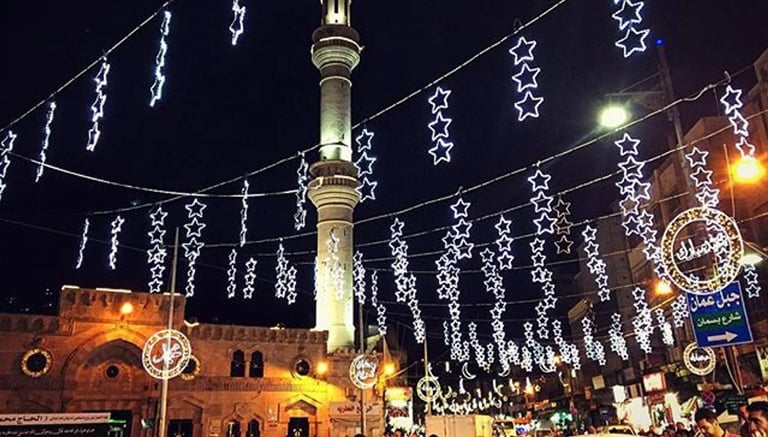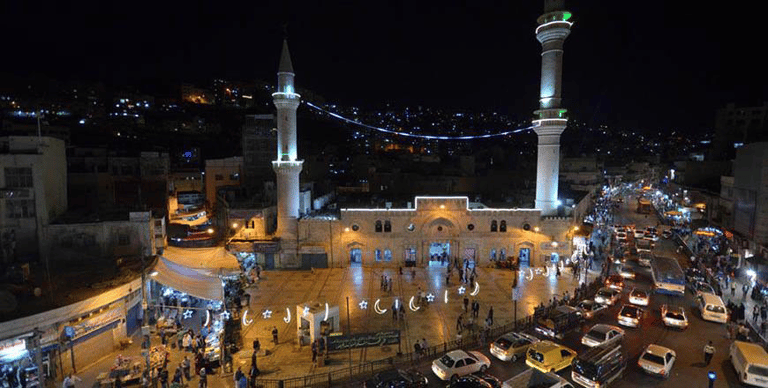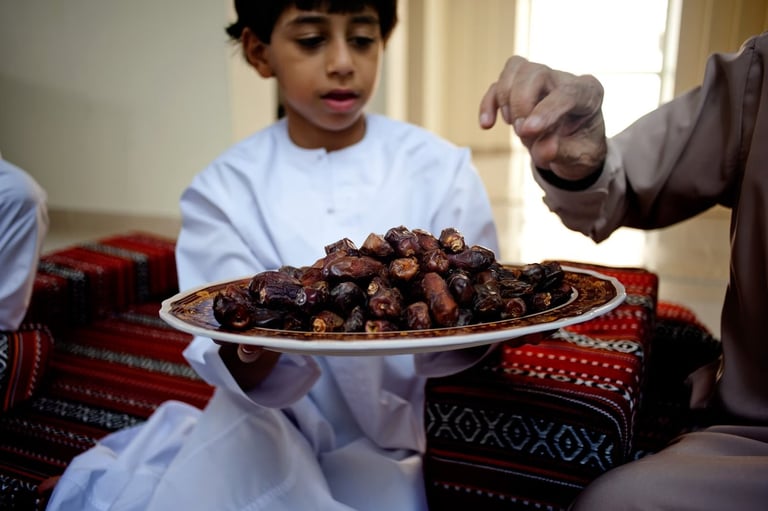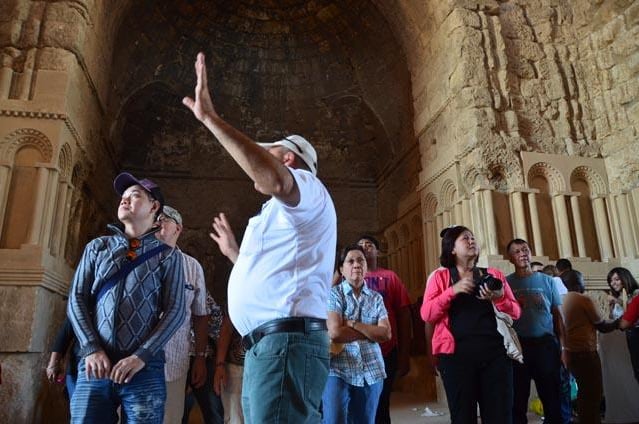Ramadan in Jordan: A Tourist's Guide to Culture, Traditions, and Travel Tips
Discover Ramadan in Jordan: Learn about its significance, unique traditions, and how it impacts tourists. Get travel tips and insights for a memorable experience.


Understanding Ramadan: A Month of Spiritual Reflection
Ramadan, the ninth month of the Islamic lunar calendar, is a sacred time for Muslims worldwide.
It's a period of fasting, prayer, reflection, and community.
For 30 days, Muslims abstain from food and drink from dawn until sunset, focusing on spiritual growth and strengthening their connection with God.
More than just abstaining from food, Ramadan is a time for increased charity, acts of kindness, and strengthening family bonds.
It's a period of deep spiritual renewal.
Jordanian Ramadan Traditions: A Cultural Tapestry
In Jordan, Ramadan is a vibrant and communal experience.
Streets are adorned with festive lights, and the air is filled with the aroma of traditional Ramadan delicacies.
Families gather for 'iftar' (the breaking of the fast) after sunset, sharing elaborate meals and warm hospitality.
Jordanian markets bustle with activity as people prepare for iftar and 'suhoor' (the pre-dawn meal). Traditional sweets like 'qatayef' and 'kunafa' are widely available, adding to the festive atmosphere.
Charity is very important, many people will donate food, and money to people who are in need.
By the time of "iftar", you will see many people in the streets and by traffic lights, distributing free water and dates to drivers and pedestrians.
How Ramadan Affects Tourists in Jordan?
What Tourists Should Know:
While Ramadan offers a unique cultural experience, it's essential for tourists to be aware of its impact on daily life.
Many restaurants and cafes, may have limited hours during the day.
Restaurants usually open late afternoon, while cafes open only after iftar (sunset).Try to be respectful of those fasting: avoid eating, drinking, or smoking in public during daylight hours.
Modest dress is always recommended in Jordan, and even more so during Ramadan.
The Jordanian law prevents people from eating, drinking and smoking in public during fasting hours.
but of course its understandable for foreigners and tourists to drink water publicly for example.You may experience the warmth of Jordanian hospitality by accepting invitations to iftar if offered.
It's a wonderful opportunity to immerse yourself in local culture.Many tourist sites will have normal operating hours, but it is always best to check before you go.
The evenings during Ramadan are very lively. Markets stay open late, Enjoy the unique atmosphere!
Travel Tips for Tourists During Ramadan:
Plan your meals accordingly: have breakfast before sunrise and consider packing snacks for daytime activities.
Many hotels offer suhoor and iftar options.Carry bottled water, even if you don't drink in public. Staying hydrated is important, especially in the Jordanian heat.
Embrace the slower pace of life during the day and enjoy the vibrant evenings.
Check mosque schedules if you wish to observe tarawih prayers (prayers after iftar).
Dress respectfully.Be mindful of traffic before iftar, as many people rush home to break their fast.
Enjoy the special Ramadan sweets that are only available during this month.
Ramadan in Jordan offers a unique opportunity to witness the rich cultural and spiritual traditions of the Muslim world.
By being respectful and prepared, tourists can have a truly memorable and enriching experience during this special time.






What Ramadan means to me personally?
As Ramadan approaches, I feel happy and peaceful. My favorite thing is having iftar with my family almost every evening.
We own our place in the same house as my brother and parents. We see each other a lot more during Ramadan. It's a nice feeling.
We cook simple food and eat together, talking and telling stories.
After dinner, we have special Ramadan sweets, especially Qatayef. They're like small pancakes filled with sweet cheese, walnuts, or cream, and baked with sweet syrup.
Spiritually, I try to be a better person. I try to control my hunger and thirst and be more disciplined. Not eating and drinking helps me feel calmer, control my feelings, and see things more clearly. I understand more about people who have less, both here and in places where there are wars and people don't have enough food or water.
Fasting in the hot weather is hard, especially being thirsty. Headaches are my main problem, but my body gets used to it quickly. After a few days, the headaches go away, and I feel more energetic.
Last weekend, we went to Wadi Rum to hike in the mountains. We walked for about three hours. It was warm and sunny, but not too hot. I finished the hike and went back to Amman feeling fine.
Ramadan is one of my favorite times of the year. When I meet people from other countries, they always ask how I can go without water from sunrise to sunset. I think it's about what you believe and how you live by those beliefs. I won't go into too much detail, but I believe our minds and bodies can do much more than we think.
But I also see some bad things during Ramadan.
The traffic is terrible, especially when everyone is going to and from work. Everyone goes shopping and hangs out after iftar at the same time.
But this also means friends and families have got more chances to meet and spend time together.
The worst thing I see is people wasting food. When we're hungry, we think we can eat a lot, so many people think Ramadan is all about buying, cooking, and eating a lot of food and sweets. But most of that food ends up in the trash.
This goes against the whole point of Ramadan. It becomes 30 days of eating instead of a time for spiritual growth and prayer. It makes me sad that people misunderstand this beautiful month.
Even now while im writing this post, i am fasting, and the first thing i started writing about is food!
this shows how hard it is, but at the same time it shows that i want and need to control myself more from thinking about physical things and start focusing on things with higher spiritual level.
Karolina, my lovely wife, she is the biggest supporter for me during Ramadan, she is not muslim, she keeps checking on me every now and then, especially when we are doing outdoor activities.
When Ramadan is about to end, i feel sad, i feel a very good friend is leaving us, a friend trying to teach us about life, patience, and discipline. But the at the same time i feel happy that Eid (celebration after ramadan) is just behind the corner!


